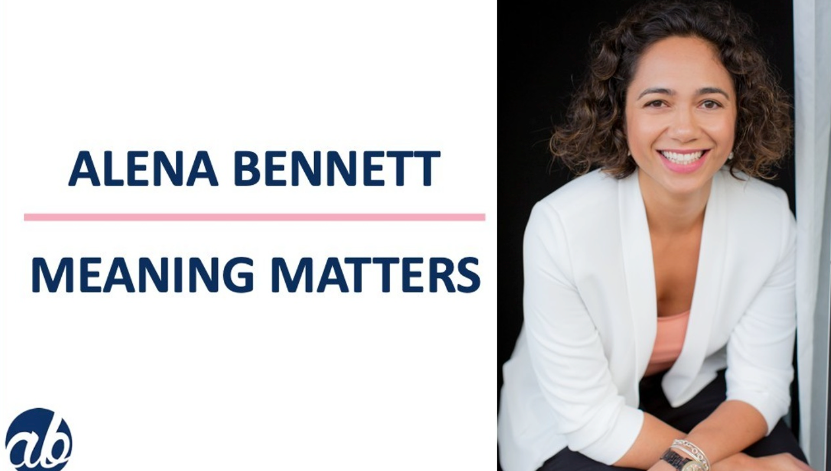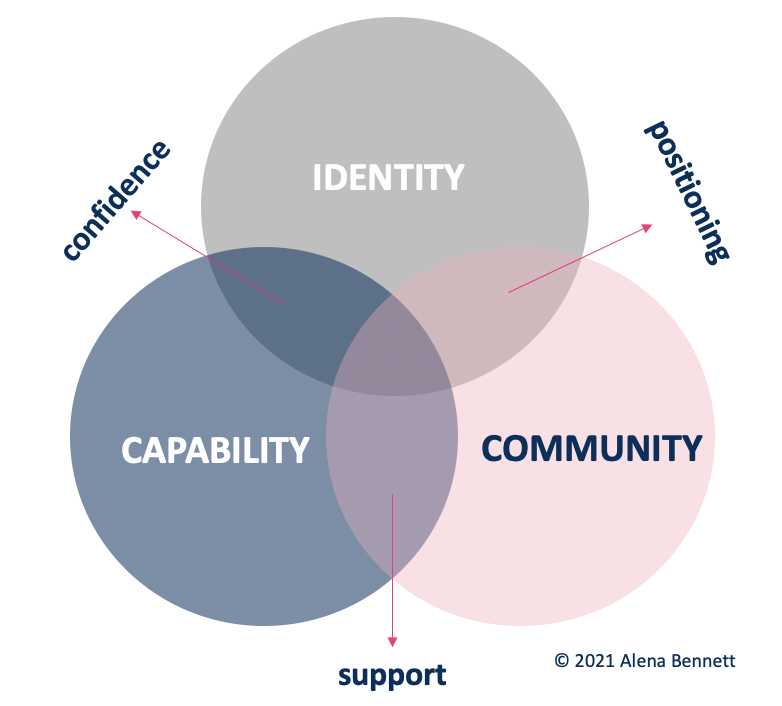Team performance and motivation is quite often shrouded by a significant amount of mistique and wonder. This week I'd like to share a perspective with you that might help you break it down in a way that is meaningful for you and most importantly, actionable.
What does the data tell you?
CFOs like yourself are experts in quickly understanding and analysing data. Most importantly, they are experts in identifying the insights in the data and therefore what action needs to be taken as a result. However, I find that CFOs tend to not be so analytical or data driven when it comes to their team and team performance. This is why it can feel hard to figure out how to motivate your team.
Question 1: What data do you have?
Before we can consider what the data is telling you, you need to ask yourself what data are you keeping when it comes to staff performance? I'm not talking about their goal setting or their performance reviews. I'm talking about data such as:
• how often do you find yourself troubleshooting a particular team member's issues?
• who do you spend most of your time talking about in a positive or negative way?
• who is continually missing deadlines?
• who has the most excuses for lack of delivery?
• who continually has resourcing or team performance issues?
• who is the person in your team that 'drains' you?
I understand that when you look at the above list it all seems very negative. But what I find is that poor performers are subtly on the radar of CFOs for a long period of time. Often too long. However, they find themselves without the specifics to know what to do with the 'gut feel that something's not right'.
Create a few simple metrics that you know - from experience - results in top or poor performance. I do this for my clients using a simple one-pager and we monitor it monthly. Weekly if we are under time pressure or the work is particularly volatile and highly sensitive. It doesn't need to be fancy or complex - it just needs to be effective.
I recently told one of my CFOs that before we commenced any work with one of his team members, that we should first understand the cause of the problem. To figure out whether it was (a) capability or (b) attitude (otherwise known as 'are they on the bus or not?'). Because of the course, the solution for each is significantly different.
When we have data, we can take the right action.
Question 2: What are the drivers of performance?
When it comes to overall performance of your team, asking who as well as what are the key drivers of performance is important. But let's start with the 'what' because we should first take an objective view of performance.
What are the key drivers of performance for your team?
You'll be tempted to focus here on process, or function, but I'd like to encourage you to focus on outcomes and priorities. When it comes to the key priorities for your team, what tangible outcomes do you need? Got that? Great - now what are the drivers of those outcomes? Do they include:
• delivering on time
• cooperation with and by the business
• team capability
• team capacity
• the ability for the team to work together seamlessly
• anything else?
Now the above list probably sounds a little like nirvana, so let's go a little deeper and ask the following:
Who are the key drivers of performance for your team?
Who is the person (or people) in your team that rally everyone together? That force the conversation that needs to be had? That calls out the insanity or indecision when they go round and round and round?
Conversely, who is the person (or people) that consistently bring the energy down? That avoid the difficult conversations or doesn't lean into the problem solving?
Again, this might seem 'wrong' for me to be asking you these questions, but you know the answer to them, don't you?
I was asked recently in an interview: why is it so important to make time for professional development? My response was, 'It's less about time and more about timing. We can do everything just not at the same time. The important factor to consider is what is the most useful or relevant professional development or learning required for the current priority'. This doesn't mean 'just in time' learning, this is about determining the priority and using that as the driver.
When we know the drivers of performance, we know the right action to take at the right time.
Question 3: What are the levers you can pull?
Given the answers to the questions above, what levers can you pull in order to drive better performance? Can you reallocate resources? Can you bring in a contractor to provide short term assistance? Can you bring the team closer together so they understand how important they are to each others' performance? Can you temporarily pause one piece of work to get another complete on time/or to the quality needed for the next?
I have a client that because of the impact of the pandemic, they decided not to run the budget process last year. Shock horror! I can hear you gasp through the wifi. But that was the lever my client and her CEO decided to pull as a result of the conditions they faced.
When you consider all the levers, you drive innovation and unlock new performance potential.
Do these 3 questions sound familiar?
They probably do. These are exactly the questions you ask yourself when analysing business performance every day. These are the very questions of which you are an expert in!
The core message is, if you don't know - seek to understand. Lean into the problem, and approach it like you approach your business challenges. Collate the data, and consider the drivers and levers.
How this relates to motivating your team
Influence happens one person at a time. You can't generalise or think that team performance improves because you stick them in the same room. Sure that might work over time, but most CFOs are crunched for time. You need results now.
Once you have asked and answered the above questions, you'll know the weak links you need to focus on. You'll notice the greatest assets in your team. Create a spreadsheet for all of your direct reports. Keep track of what drives them and what doesn't. Use that data to drive the actions you need to motivate or move on the underperformers. Be transparent in those actions and the results you expect to see. This will create understanding, alignment and drive.
Get the data
Understand the trends
Take action: Pull the levers
Where do you need to focus to drive your team's performance?
This breakfast event is ideal for you if:
• Want the thinking about 'best practices' for a CFO done for you and the templates and tools provided for you so you can focus on execution and implementation.
• You don't like networking but could benefit from a safe and confidential space with your peers to share challenges and learn from their experiences and ideas.
This breakfast is not ideal for you if:
• You don't want to create efficiency or reduce friction in your week
• You're content operating in a reactive state with a 'deliverer' mindset
Date: Thursday 15th April, 2021
Time: 7am-9am
Location: Sofitel Darling Harbour, Sydney
Investment: $79 + GST






